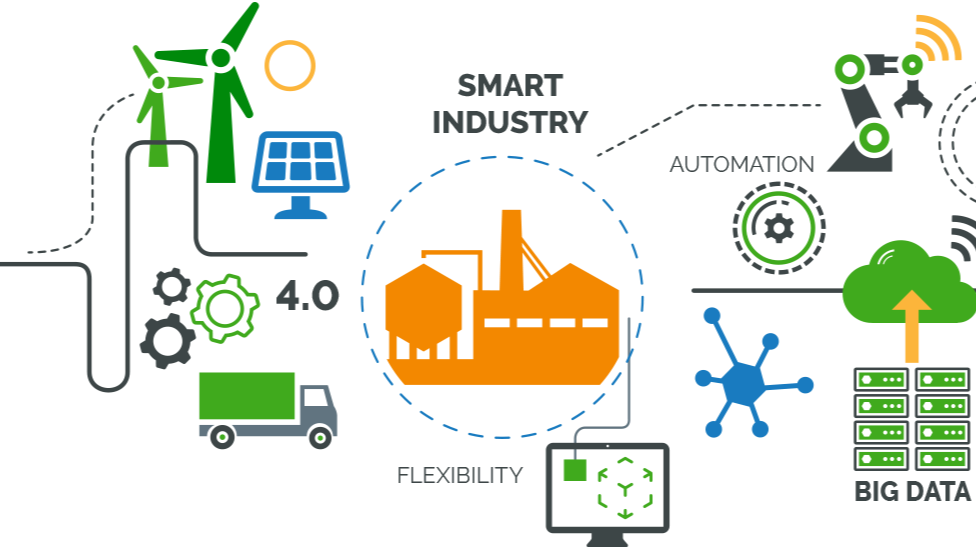Industrial IoT Market Overview
The Industrial Internet of Things (IIoT) represents a transformative shift in how industries operate, leveraging interconnected devices and advanced analytics to enhance productivity, efficiency, and decision-making. The IIoT market is characterized by the integration of smart sensors, machines, and software applications that facilitate real-time data collection and analysis across various industrial sectors. The Industrial IoT Market Size is projected to grow significantly, driven by the increasing adoption of automation technologies and the need for operational efficiency. The convergence of information technology (IT) and operational technology (OT) is reshaping traditional manufacturing processes into more agile, data-driven operations. This evolution not only enhances productivity but also fosters innovation in product development and service delivery.
Market Key Players
The IIoT market features several key players that are instrumental in driving technological advancements and market growth. Major companies include General Electric (GE), Siemens AG, IBM Corporation, Cisco Systems Inc., Honeywell International Inc., and Rockwell Automation. These organizations are at the forefront of developing IIoT solutions that encompass hardware, software, and services tailored for various industrial applications. For instance, GE’s Predix platform offers a comprehensive suite for asset performance management while Siemens focuses on digital twin technology to optimize manufacturing processes. Additionally, emerging startups are also contributing to the ecosystem by introducing niche solutions that cater to specific industry needs. The competitive landscape is marked by strategic partnerships and collaborations aimed at enhancing product offerings and expanding market reach.
Get PDF Sample Report + All Related Table and Graphs:
https://www.marketresearchfuture.com/sample_request/2135
Market Segmentation
The IIoT market can be segmented based on components, application areas, deployment types, and regions. In terms of components, the market includes hardware (sensors, actuators), software (analytics platforms), and services (consulting, system integration). Application-wise, sectors such as manufacturing, energy & utilities, transportation & logistics, healthcare, and agriculture are prominent users of IIoT technologies. Deployment types can be categorized into cloud-based solutions versus on-premises systems; cloud-based deployments are gaining traction due to their scalability and cost-effectiveness. Regionally, North America holds a significant share of the IIoT market due to early adoption of advanced technologies; however, Asia-Pacific is expected to witness rapid growth owing to increased investments in smart manufacturing initiatives.
Market Drivers
Several factors drive the growth of the IIoT market. Firstly, there is an increasing demand for operational efficiency across industries as businesses seek ways to reduce costs while maximizing output. The ability to collect real-time data from connected devices allows companies to make informed decisions quickly. Secondly, advancements in sensor technology have made it feasible to deploy IoT devices at scale without prohibitive costs. Thirdly, regulatory pressures related to safety standards and environmental compliance are pushing industries towards adopting smarter technologies that ensure adherence while optimizing resource use. Furthermore, the rise of Industry 4.0 initiatives emphasizes automation and data exchange in manufacturing technologies which further propels IIoT adoption.
Market Opportunities
The IIoT market presents numerous opportunities for growth as industries continue to digitize their operations. One significant opportunity lies in predictive maintenance; utilizing AI-driven analytics can help predict equipment failures before they occur—reducing downtime significantly. Additionally, there is potential for enhanced supply chain management through real-time tracking of goods using IoT-enabled devices which improves transparency and efficiency throughout logistics networks. Moreover, as cybersecurity becomes increasingly critical with more devices connected online; companies specializing in secure IoT solutions will find ample opportunities for growth within this sector.
Regional Analysis
Regionally speaking, North America remains a leader in the IIoT space due to its robust technological infrastructure and high investment levels in R&D activities related to IoT innovations. The United States has seen substantial implementation across various sectors including manufacturing and healthcare which serves as a model for other regions. Europe follows closely with strong governmental support for digital transformation initiatives aimed at enhancing industrial competitiveness through smart technologies. Meanwhile, Asia-Pacific is poised for explosive growth driven by rapid urbanization trends coupled with government policies promoting smart cities—this region’s vast population presents unique challenges that IIoT can address effectively.
Industry Updates
Recent developments within the IIoT landscape indicate a trend towards greater interoperability among devices from different manufacturers—a crucial factor for widespread adoption across diverse industrial environments. Companies are increasingly focusing on creating open standards that allow seamless communication between disparate systems which enhances overall operational efficiency. Furthermore, advancements in edge computing are enabling faster data processing closer to where it is generated rather than relying solely on centralized cloud infrastructures—this shift reduces latency issues associated with real-time applications critical in industrial settings.
Browse In-depth Market Research Report:
https://www.marketresearchfuture.com/reports/industrial-internet-of-things-market-2135
Contact Us:
Market Research Future (Part of Wantstats Research and Media Private Limited)
99 Hudson Street, 5Th Floor
New York, NY 10013
United States of America
+1 628 258 0071 (US)
+44 2035 002 764 (UK)

